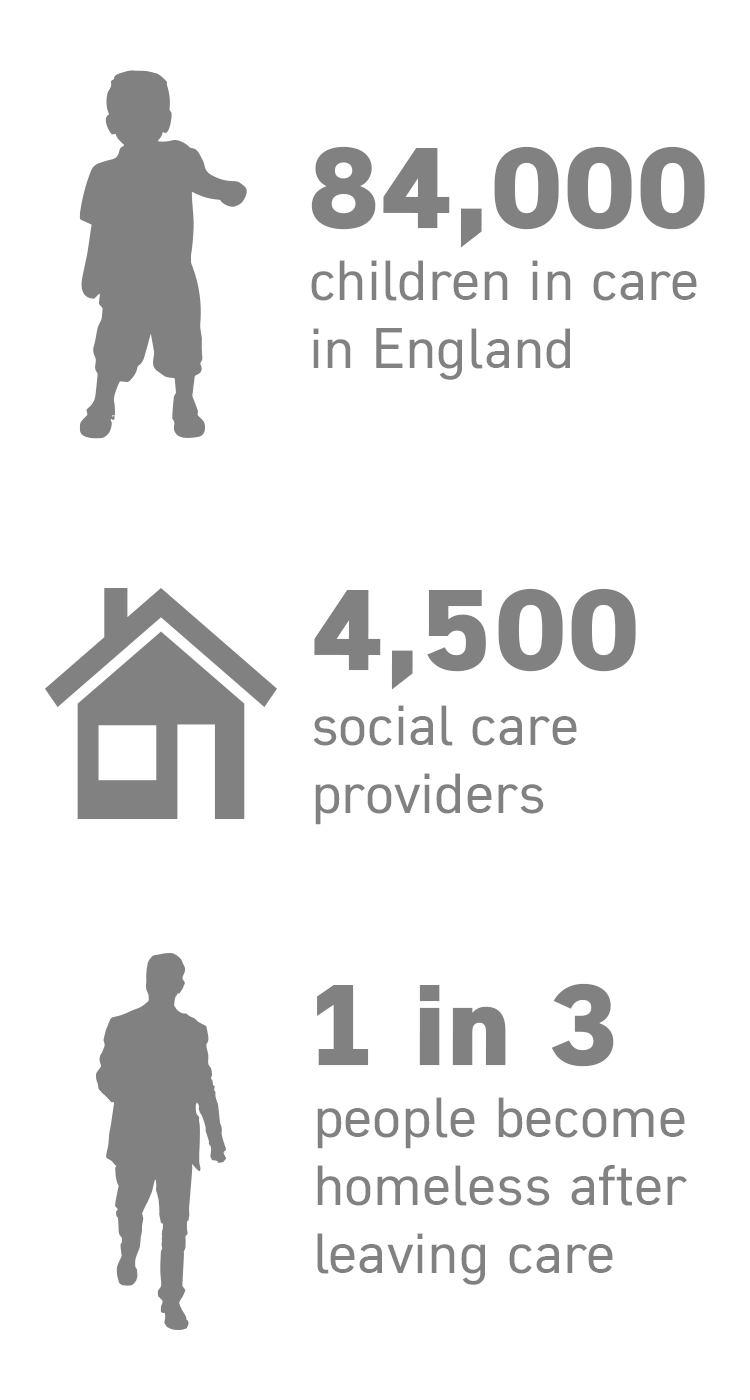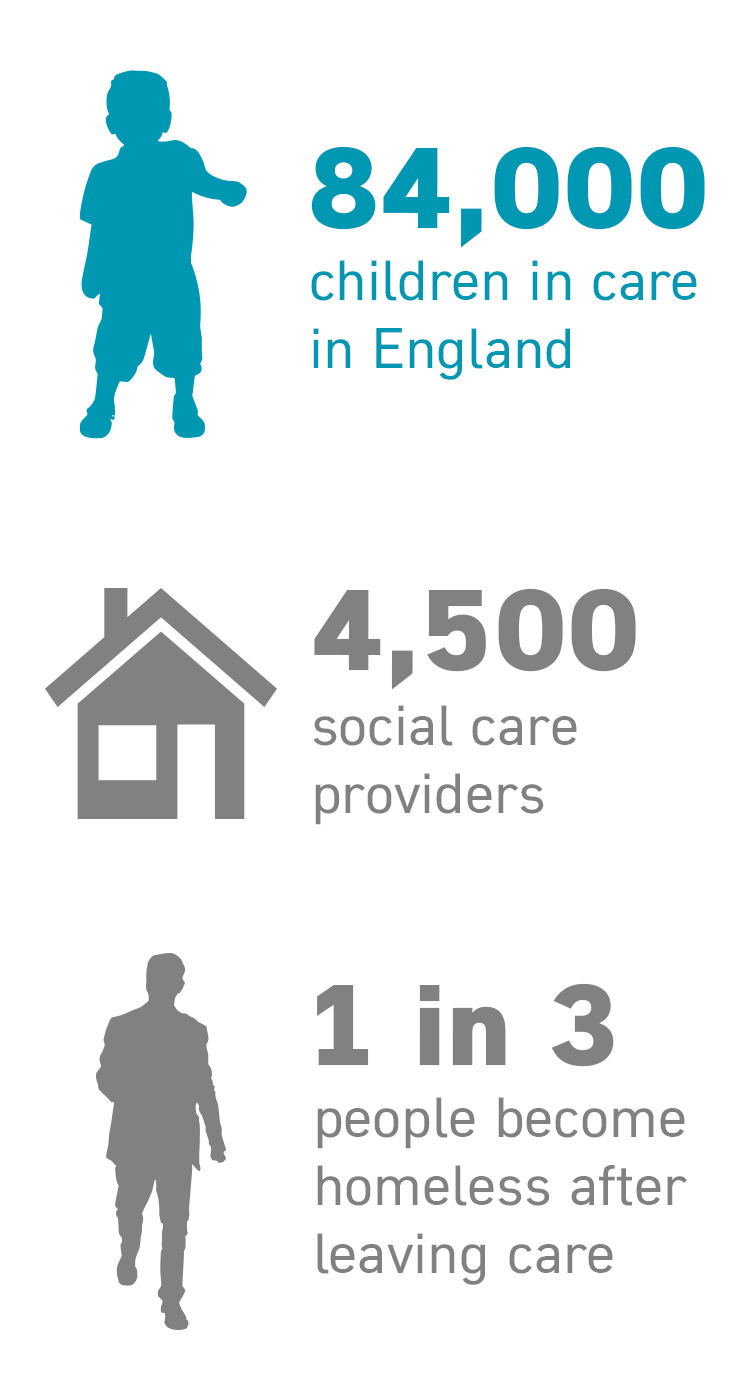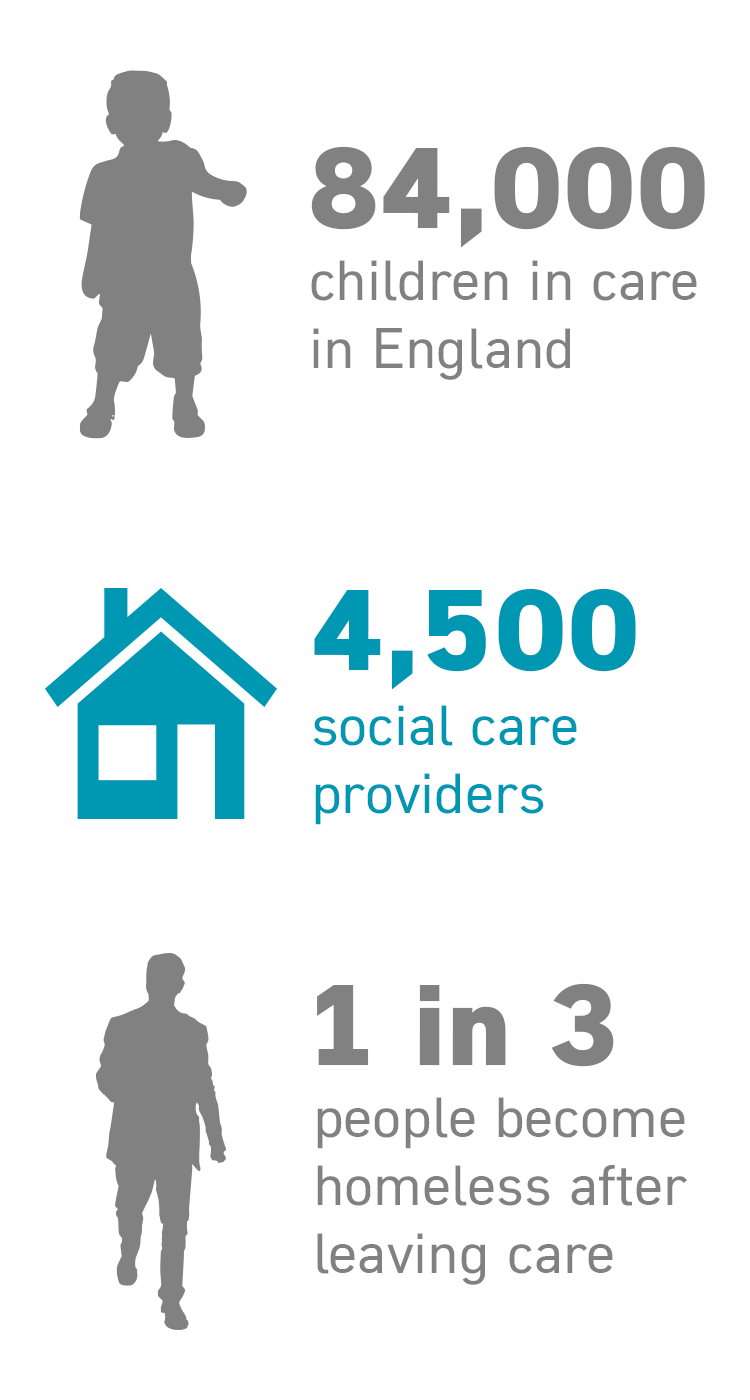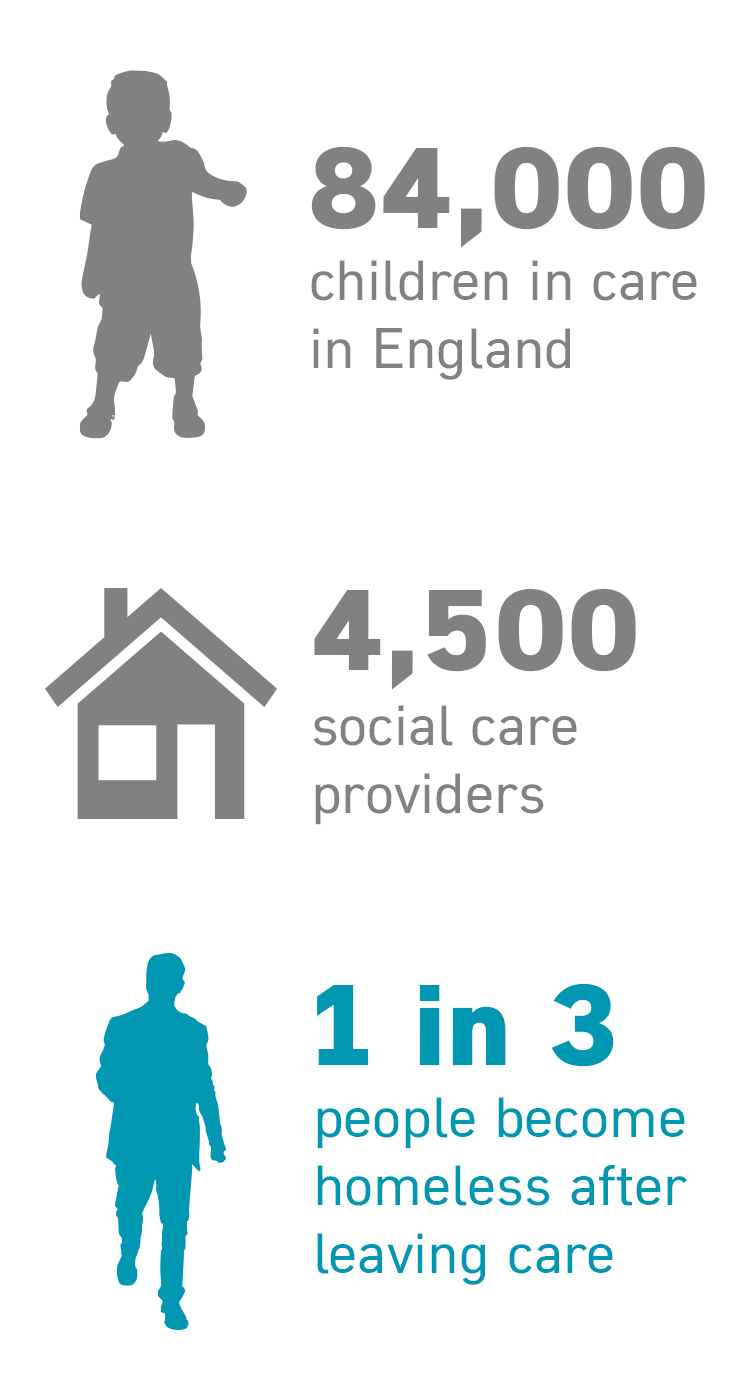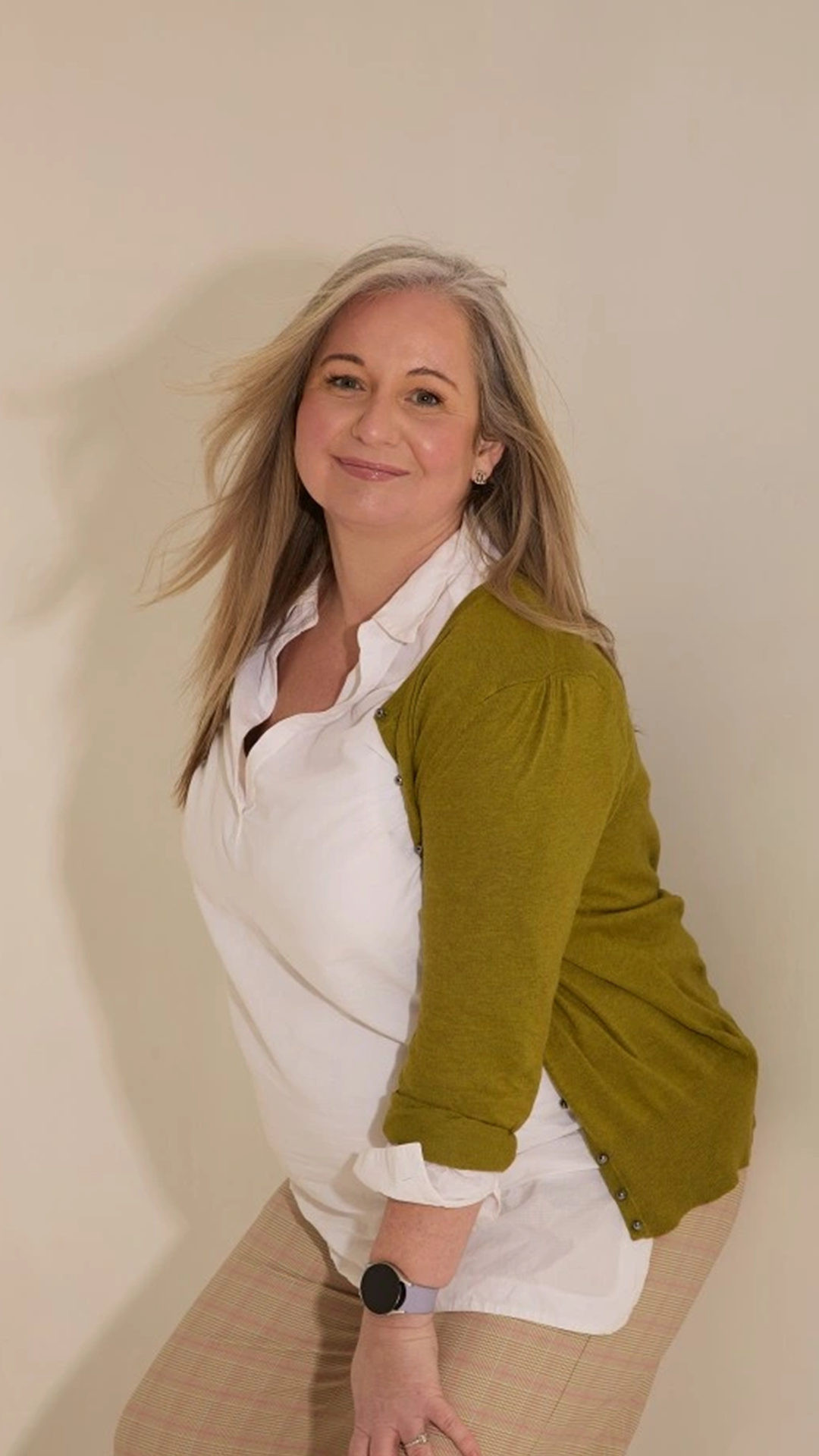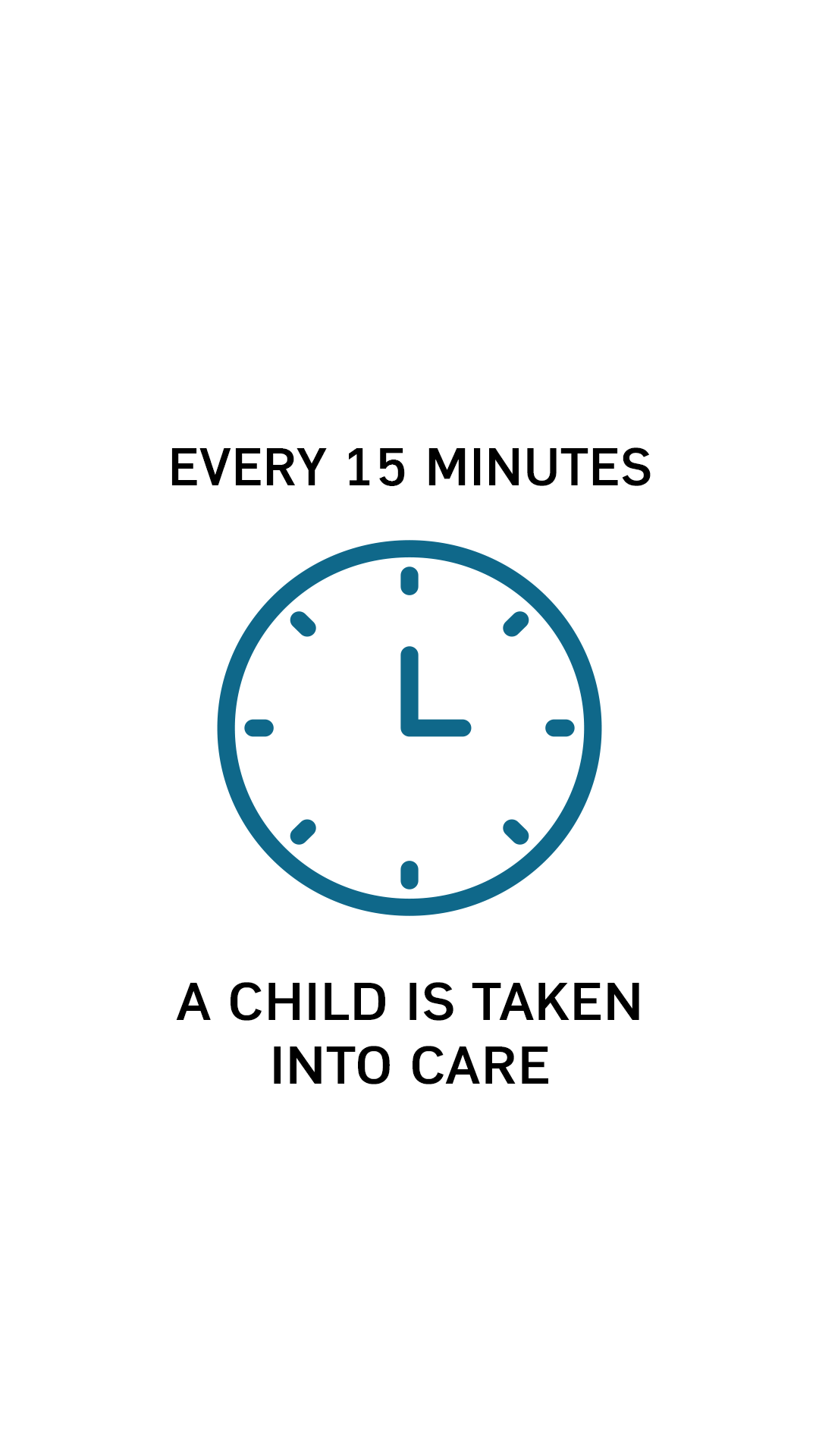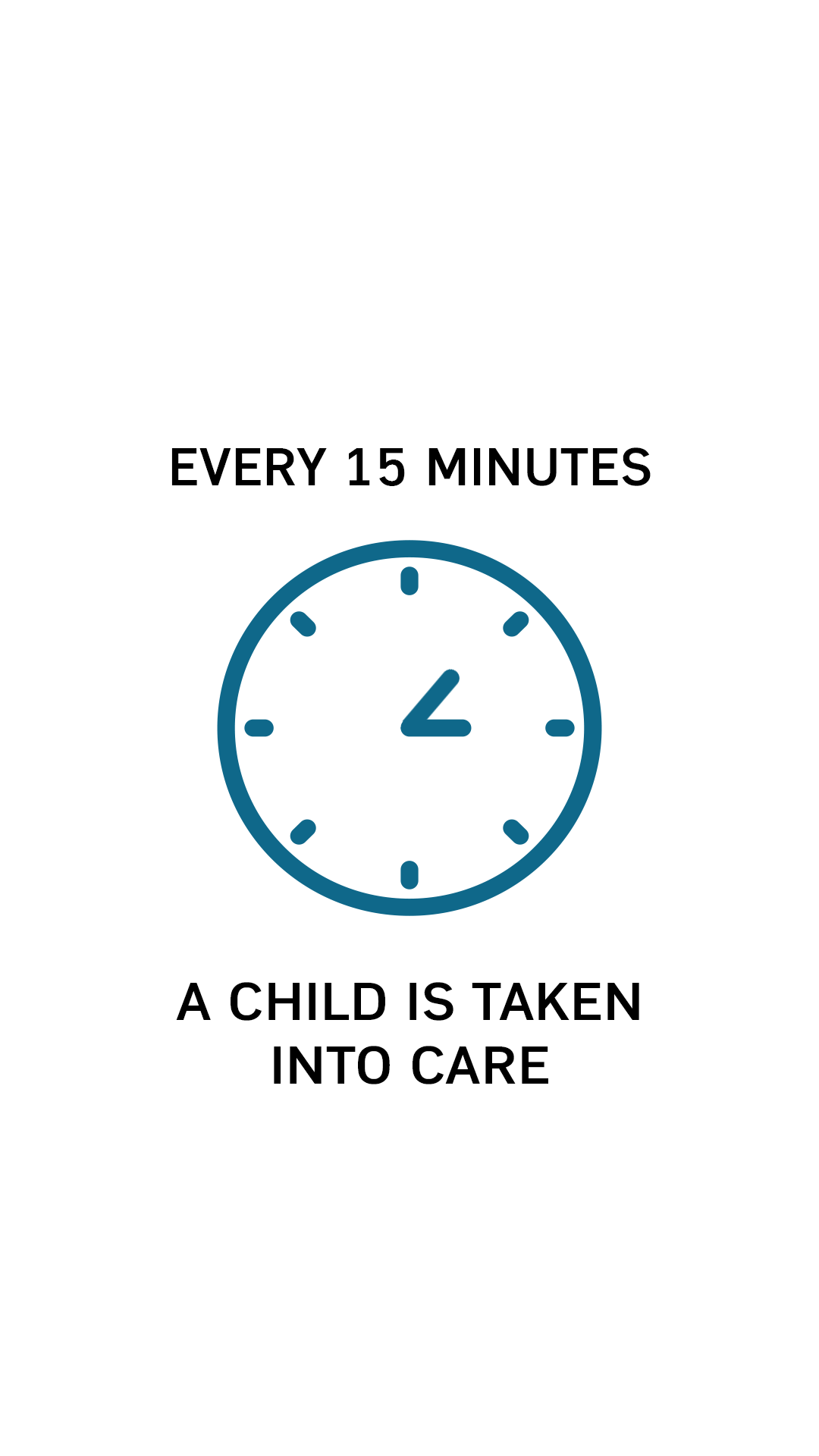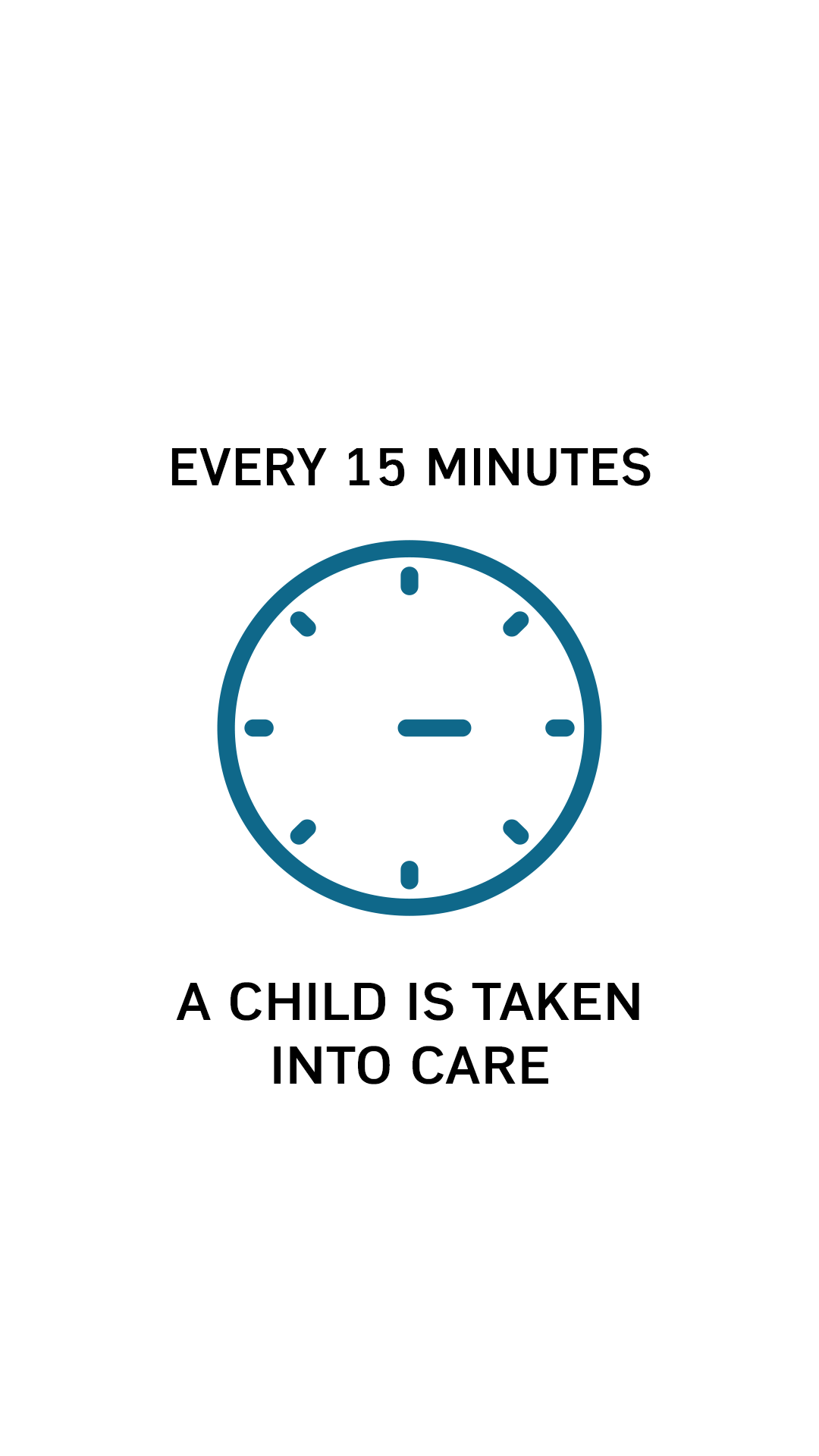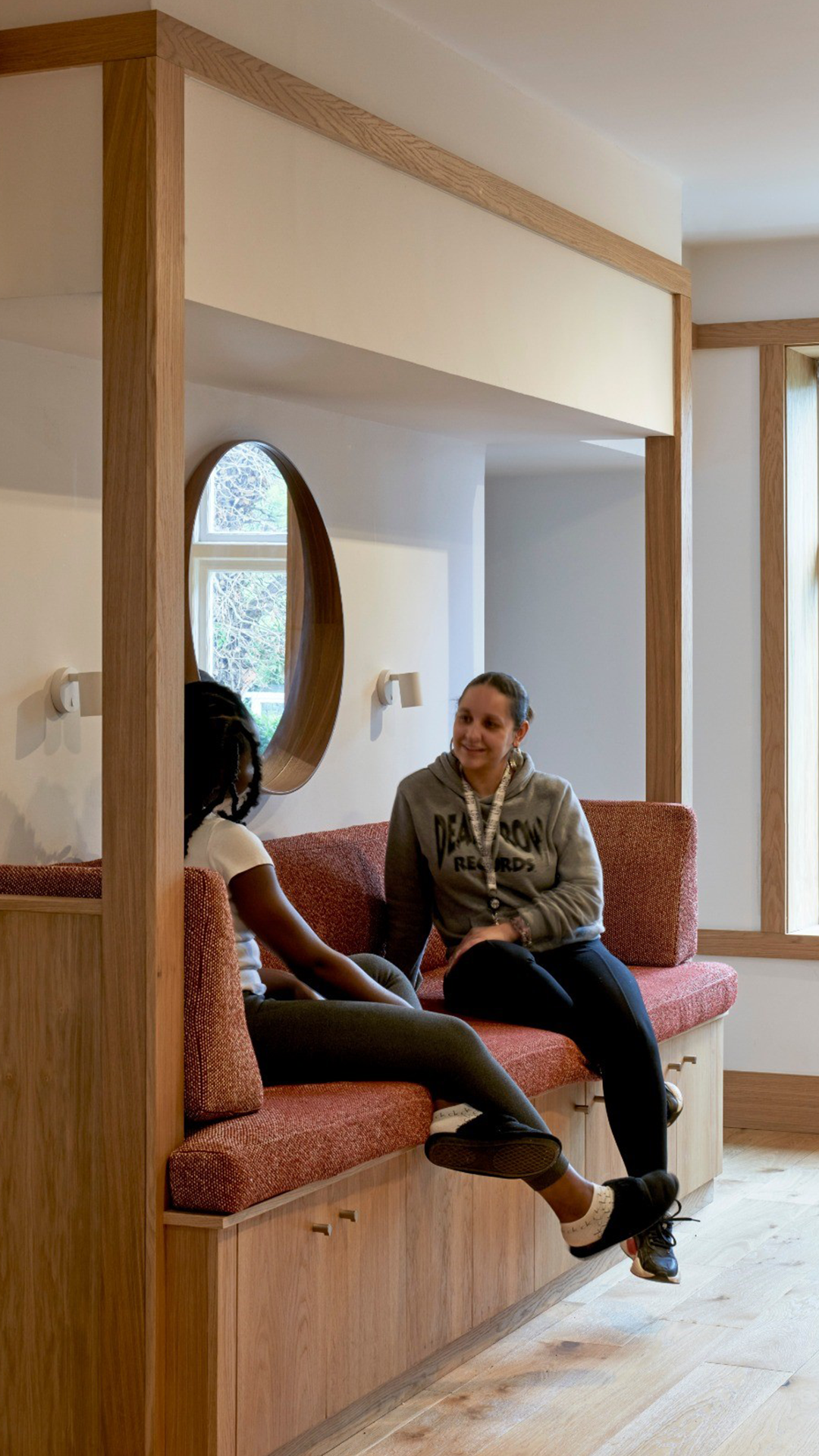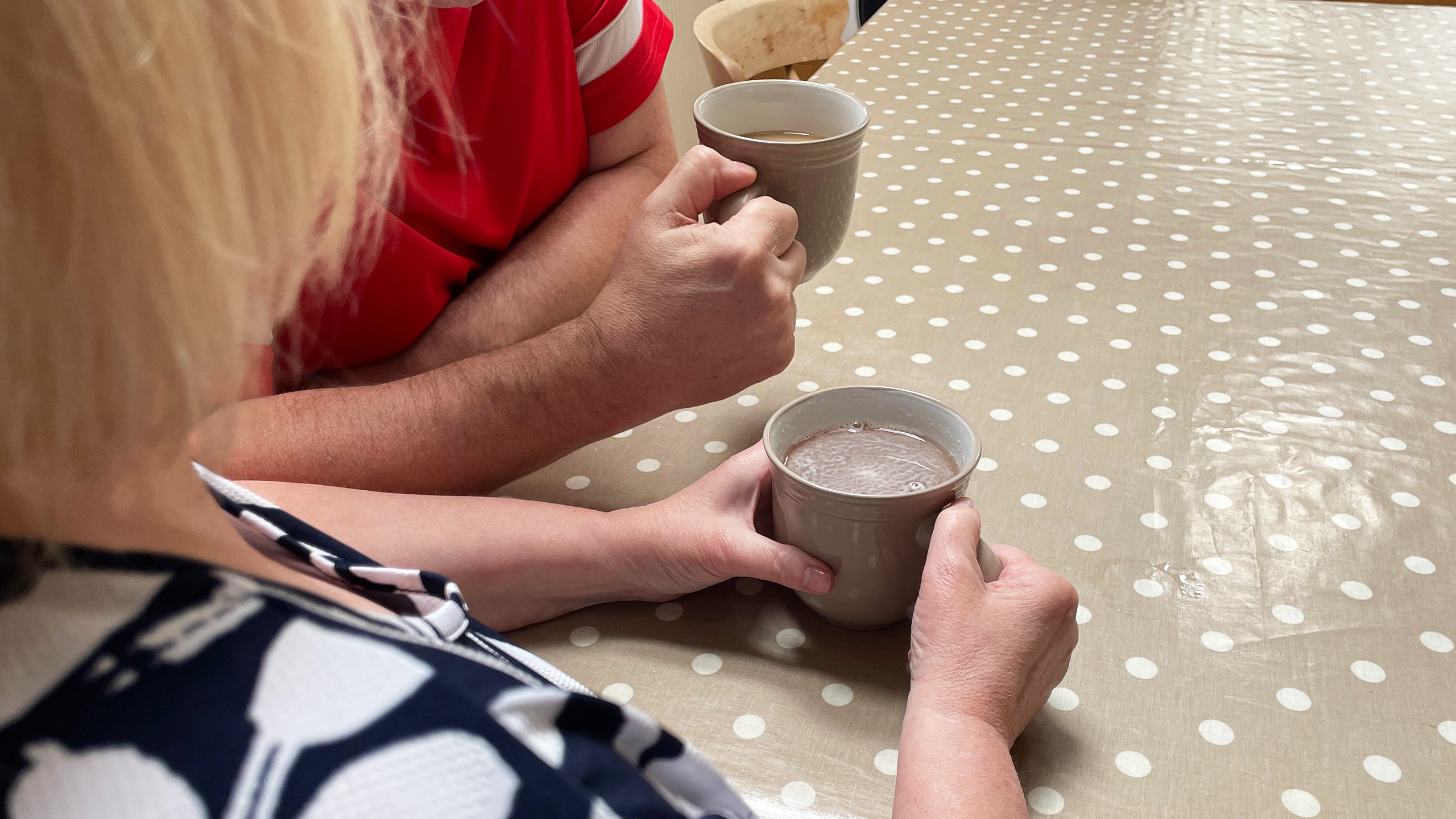Flying the Nest
The people fighting for England's care leavers

Some children in care are "not just naughty children, they can be downright evil," Reform UK Councillor Andy Osborn claimed in a Cambridgeshire County Council meeting.
This is just one of the many stigmas that care-experienced people face about their time in the system – the very system that Education Committee Chair Helen Hayes MP brands to be committing "a moral failure" for its care leavers.
Fighting against a slew of misconceptions and a system offering "no consistent support" for its leavers, care-experienced people are trying to change the system for future generations, but what can be done to fix a system that is supposedly not fit for purpose?
Government data found that, as of March 2024, nearly 84,000 children in England are in care.
Children can be taken into care for a variety of reasons, whether that be because of neglect, physical abuse, or parental illnesses.
But what happens when these children grow up?
Under current government legislation, children should be helped to prepare for leaving care from the age of 16. Whilst other children are preparing to sit their GCSEs and choosing college choices, children in care are worrying about having a roof over their head, how they will feed themselves, how they will pay bills, and all of the adult worries most teenagers would not need to think about.
84% of children's homes are run by private providers, which is something incredibly controversial within care-experienced circles. In 2022, an investigation by The Observer found that more than 100 privately-run settings were considered 'inadequate' by Ofsted.
Whilst navigating the sensitive stories of previous care leavers whilst hearing from those fighting to improve the system, we ask: what can be done to improve life for care leavers when they are ready to fly the nest?
Sources: Looked After Children in the UK (GOV.UK)
Children's Social Care in England 2024 (GOV.UK)
Care Leavers Homelessness Statistics (BASW)
Elena's Story

Meet Elena, a soon-to-be graduate from the University of Bristol and a care-experienced young woman from Hackney, London.
Elena had been in and out of the care system for much of her life, as her parents were unable to look after her.
"I was born to two immigrant parents. My Dad is Turkish-Kurdish, and my Mum's Lithuanian. Both of them were very young when they had me; they were not ready."
At sixteen, Elena was kicked out of her Mum’s house, with nothing to her name, not even a pair of shoes. After calling the police, who took hours to arrive, Elena was taken into the care of her friend’s parents.
"I hadn't really told many people about what was going on, but I had told my friend, Eleanor. There was a particular night when my Mum kicked me out. She would do that a lot on school nights, and that night I had no shoes on.
I called the police and said, 'I've made the decision to go into care'. I didn't know if they would take it on board or not.
Eleanor said, 'If the police haven't come, we'll come pick you up and you can stay here until you get sorted.'"
Elena ended up in a private fostering arrangement, being looked after by Eleanor's parents.
Around 70% of children in care are placed into fostering arrangements. Often, the local authority will try to place a child in need with their family or friends, as Elena was, to reduce disruption.
Elena has also represented her fellow care leavers in various roles at local authority level; she has been a member of the Department for Education's Social Care Advisory Board and supported other care leavers in the borough of Hackney.
"I just feel incredibly lucky to have had somewhere I could consistently call home."
Leaving Care

A Care Leaver's Life from 16 to 25
The child turns 16
Children still under their local authority's care begin to think about their plans for when they turn 18, and the amount of support they get will reduce.
At this age, they are entitled to things such as a safe and stable accommodation and a care plan.
They are given a ‘pathway plan’ which outlines what support they will need to thrive after leaving care.
A 'statutory review' meeting will also take place, letting the child express what they want from their future.
They turn 18 and are no longer under the local authority's care.
Care leavers will typically move out of their provided local authority care and begin their adult life.
Some will choose to stay with their foster carers until they are ready to move out under the 'staying put' programme.
The local authority is no longer responsible for them, but they must offer some until their 25th birthday.
They turn 21-years-old
In many areas, the support that they receive from the local authority as the 'corporate parent' will start to end.
If they have stayed with their foster parent(s) as part of the 'staying put' scheme, the programme's support will end.
The care leaver will still be able to get some support (e.g. access to an advisor) until they turn 25.
They turn 25-years-old
Care leaver-specific support will end, and they will now only be eligible for the same support (i.e., Universal Credit, Child Benefit) as the rest of the country.
Kerri's Story

Kerri entered the care system at age 12, after facing neglect and abuse at home. She spent 5 years in residential care, costing an estimated £910,000 total.
Undiagnosed autism and ADHD contributed to some difficult teenage years, where Kerri struggled to self-regulate. She felt misunderstood in care, saying: "all these labels were placed on me by people who saw my behaviour but didn't really understand it."
When she was 17, she had to leave her last care placement abruptly after another resident tried to physically attack her with a fire extinguisher.
She had a difficult time after leaving care, but now has 4 children. Having grown up in a violent home, Kerri swore to never parent her children using fear-based tactics: no hitting, no smacking, and no abuse.
In 2019, it all came to a head when she was sectioned after a suicide attempt, the culmination of her trauma from being in care and years of untreated mental health issues. Her children were placed into care for a period, something she had spent many nights praying to never happen.
Out of her lived experience as a care leaver and mental health advocate came the 'Be Me' wellbeing programme. The project is based in Kirkby, just outside of Liverpool, and provides peer-to-peer support and creative sessions for care-experienced individuals, neurodivergent people, and unpaid carers. Kerri, now age 46, has organised activities from inner-child healing workshops to creative journaling groups.
"Despite having a lot of different types of therapies within the NHS, nothing really resonated with me because my mind is hyperactive."
"The aim out of my own lived experience is to empower, to create positive changes, to call for more research to be done on the implications of not offering a good enough support once a person leaves the system."
Care leavers are 4 to 5 times more likely to attempt suicide in adulthood, and with care leavers like Kerri believing that current wellbeing services are not always supporting children in care and care leavers adequately.
Image Credits: Kerri Moore
An Emotional Journey

Many people have complex feelings about leaving care.
For some, they are eager for independence and to close a difficult chapter in their lives. However, for others, they are worried about being on their own in the world once again.
Elena felt that she was well supported, but partially attributes this to being in a private fostering arrangement: "I had a really good rotation of social workers. I got really lucky there, as everyone did want the best for me, but I think the difficulty was that I didn't know quite what I needed help with."
On the other hand, Kerri felt incredibly unsupported after leaving care so unexpectedly.
"Unfortunately, it wasn't a very supportive experience for me... other than the financial support that was initially provided, there was no consistent support."
"I was placed in the flat, and that was it. There were no attempts to contact me. I think those who are care-experienced develop self-preservation, so we don't reach out. At the same time as they didn't reach out to me, I didn't reach out to them."
Source: A place to call home for
every child in care (Action for Children)
In 2022, care leavers were surveyed about their experiences leaving care. A significant portion of them were unhappy with their first placement after leaving care. Feelings of fear, anxiety, and vulnerability were particularly prominent amongst the 255 respondents.
One in three care leavers will experience homelessness within two years of leaving the care system. Centrepoint, a youth homelessness charity, believes that "too many care leavers are being forced to live in unsuitable conditions," whether that be because of the distance to their education or because of its poor quality.
Current Changes
Who are making changes to improve outcomes for children in care?

Other care leavers have told similarly complex stories about leaving the system. If the system is letting care leavers down by housing them inadequately, what is being done to support people before they age out of their placements?
Emmanuel is the Founder and Director of Lighthouse Pedagogy Trust, a charity that runs a children's home in Sutton.
Stemming from his background as a teacher at a troubled school in Birmingham, Emmanuel began to notice a disparity in children in care versus those not in care: socially, academically, and emotionally.
In 2017 and 2018, he spent time in residential settings in Germany and Denmark, where he learnt that staff inside these homes held qualifications in social pedagogy. Emmanuel compared this back to the English system, where staff are often inexperienced, overworked, and underpaid.
He hopes to "train people who work with our most vulnerable children to the level they need to be."
Upon returning to the UK, Emmanuel set up a charitable organisation. Their first children's home was opened in Sutton in February 2022, and utilises the principle of social pedagogy to try to foster a supportive education-focused environment for its children.
Children in care typically suffer from an attainment gap, making them less likely to go on to study at university. Only 13% of care leavers study at university, compared to 46% of the rest of the population, which makes Elena's achievements all the more impressive.
In conjunction with Kingston University, Emmanuel has helped to design a programme about children's residential work and how best to approach working with a trauma-informed approach.
"We hope that our ideas around how you train staff in residential care will take root and spread."
The first children will be leaving the Sutton home in the next few months, which means that the charity's effectiveness is still to be determined.
Lighthouse's services are all charitable, but that is not often the case within children's care. There is an ongoing debate within lived-experienced circles about the ethics of privatising the care of society's most vulnerable – and often, incredibly traumatised – children.
Earlier this year, across the border in Wales, a bill was announced that will ban for-profit children's care from 2030, effectively stopping children's care from being a for-profit practice by private corporations.
Image Credits: Lighthouse Pedagogy Trust
But what are the local authorities doing?
Some may argue that what other organisations offer should be considered secondary to what the local authority provides.
Peterborough City Council have been working to improve the support for their care leavers beyond the traditional support given through a local offer.
They have appointed Elle Johnson as their Local Offer Lead, and she has been using her experience as a care leaver to support the young people she works with.
"We just want to make sure we're giving them every opportunity to succeed and reducing as many barriers as we can."
Elle is currently developing an offer for Peterborough's care leavers who are also new parents. Many of the young adults that she works with say that the costs of having a child, whilst navigating leaving care, are a major barrier to success for them.
But the work that Elle does is not common across councils: "Previous to me, there wasn't a Local Offer Lead driving this work. It was reliant on the Leaving Care Service, and the capacity within the team is massively stretched. Budget constraints as well are a massive problem."
"Often when I start conversations with new teams across the council, any organisation – even charities – they say the same thing to me: 'we don't have a budget to support this'.
Budget constraints come up time and time again in children's services. Wealthier areas, like Kensington, tend to have better Ofsted results, whilst caring for fewer children. This creates a 'postcode lottery', meaning that children in care in poorer areas are more likely to face difficulties linked to wealth inequality.
In 2015, a government report described how "local councils are spending widely different amounts of taxpayers' money supporting these vulnerable young adults, but the outcomes vary widely too – and the Government has not got a grip on why there is no relationship between spending and outcomes."
Professor Julie Selwyn says that local authorities need to do more: "Young people leaving care can have good outcomes, but Local Authorities’ procedures are critical in making the difference"
Local authorities are managing ever-rising numbers of children going into care on an incredibly tight budget, creating issues for care leavers, like Kerri, who felt under-supported by their local offer
Advocacy: Filling the Gaps
However, where there are gaps in what the local authority offers, the third sector steps up.
Charities like The Care Leavers' Association (CLA) advise young people leaving the system, provide a community for people who want to reflect on their time in care, and campaign for changes to legislation and support services.
Toya and Terri are both Project Workers for the CLA and are heavily involved with the 'Connected' project, supporting care leavers over the age of 25. Become have identified a cliff edge of leaving care, and this project aims to improve support for older care leavers.
Describing the work she does, Terri said: "I was finding a lot of the older care leavers come to us because they're left to navigate the world on their own once they're signed off. There are still lots of systems they don't understand or don't know how to challenge."
The CLA's meetings try to connect older care leavers.
The CLA's meetings try to connect older care leavers.
When asked about what changes have been enacted over the last few years, Kerri recounted how one of the CLA's older members said that he finds it heartbreaking to see care leavers "campaigning and picketing for the same changes [he was fighting for] 35 years ago," making it hard at times to keep the passion and fire alive.
Both Elena and Kerri expressed how they thought specialist mental health support could have changed their respective trajectories, something that Toya says their members agree with: "One thing we always say to any professional is that if there's any change we could make, it is that care leavers could get lifelong mental health support. [In some cases] they're offered it before they leave care, but they're not ready, most of the time, at that point to process what's happened."
"I think I would have appreciated some clinical intervention off the bat," echoes Elena.





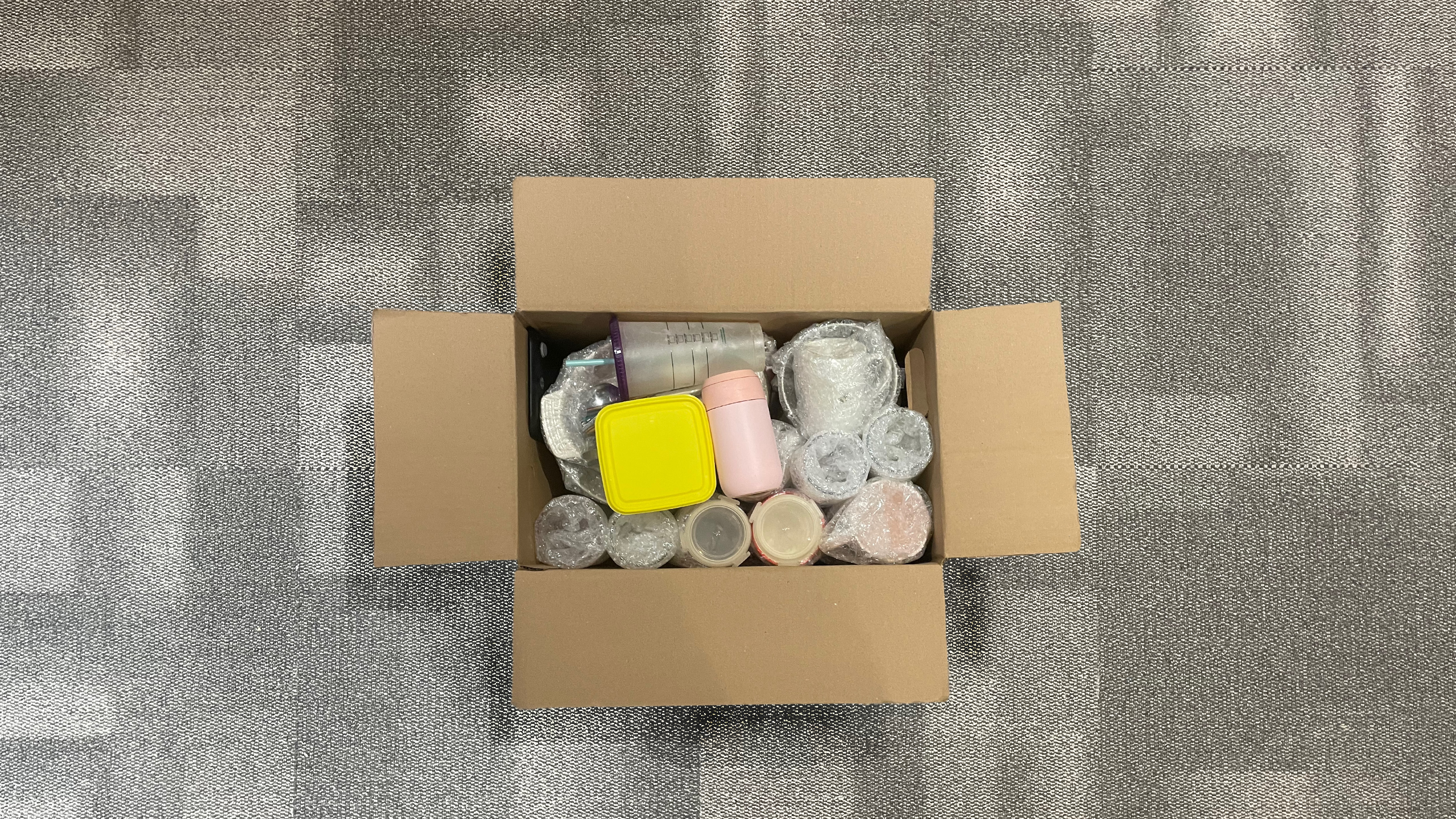
Moving Forward
What does the future of care look like?
Having heard heartfelt testimonies from care leavers, seen national statistics, and discovered social care on a local and national scale, this leads to the ultimate question: what can be done to improve outcomes for care leavers?
Elena and Kerri: Having both only received mental health support once they had reached a near-crisis point, they both believe that a focus on prevention instead of treatment could support care-experienced people before they need the most intense (and costly) interventions.
"We've got adults who are in serious need of trauma-informed mental health support, and there isn't enough out there," says Kerri.
Emmanuel: He hopes to improve the quality and stability of placements for young people, subsequently looking to improve their long-term outcomes of care-experienced people.
Across the country, Emmanuel thinks a bigger shift is needed: "I want to see residential care professionalised."
Elle: Within her local authority, she is working to improve the breadth of their local offer by directly working with their care leavers. Across other local authorities, care leavers feel as if there is a postcode lottery that needs to be rectified.
Elle is optimistic her area will keep improving, saying, "I would say it's working really well in Peterborough, and the focus is definitely coming back to the offer."
Terri and Toya: As part of the Care Leavers Association, both are looking for broader systemic change to support care leavers in the long-term, not just until they reach 25.
They hope that change will come, and try to remain optimistic about the future, but Terri remains concerned as "Nobody wants to be the first one to step out of line in work and say 'actually, we could be doing better."
Many people go on to live fulfilling, happy lives both because of – and in spite of – their time in care. Spending time in the social care system for some was an absolute lifeline when they needed it most, but for others, the system that was meant to protect them did not measure up. There is not one universal experience, and this project captures the stories of some, not all.

